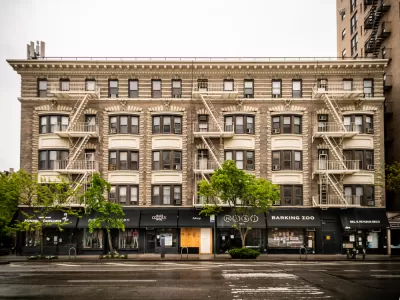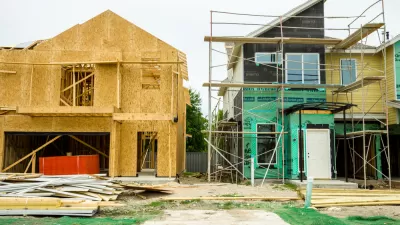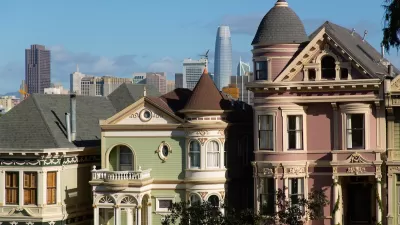Despite mounting evidence that cities like New York must build more housing to accommodate their growing populations and stem the housing affordability crisis, some of the city's most progressive neighborhoods are resisting new development.

In an opinion piece for the New York Daily News, Ryder Kessler asserts that the "New Yorkers most engaged in left-wing politics are often the most opposed to the progressive change they preach," particularly when it comes to housing policy.
At a meeting considering Haven Green, "an affordable housing development for low-income, formerly homeless, largely LGBTQ seniors proposed for a space now occupied by the Elizabeth Street Garden," Kessler found the majority opinion held that "[a]ffordable housing should be built, board members said, just not here." Yet the facts, Kessler writes, "are undeniable: New York City must build. Between 2009 and 2018, we added only 19 housing units for every 100 new jobs — one for every five new New Yorkers. With demand outstripping supply, prices nearly doubled."
Critics of market-rate development "argue that new market-rate housing doesn’t help and affordable units will still be inaccessible. But research is clearer by the day: New units of all kinds drive all prices down, and those in desirable neighborhoods take pressure off lower-income areas more likely to suffer from displacement."
To Kessler, "Community Boards’ efforts to block new housing is a symptom of New York progressives’ tendency to abandon expert evidence, racial equity and empowerment of the marginalized — even as they attend rallies to chant 'housing is a human right.'"
FULL STORY: Progressives’ glaring development hypocrisy

Planetizen Federal Action Tracker
A weekly monitor of how Trump’s orders and actions are impacting planners and planning in America.

Map: Where Senate Republicans Want to Sell Your Public Lands
For public land advocates, the Senate Republicans’ proposal to sell millions of acres of public land in the West is “the biggest fight of their careers.”

Restaurant Patios Were a Pandemic Win — Why Were They so Hard to Keep?
Social distancing requirements and changes in travel patterns prompted cities to pilot new uses for street and sidewalk space. Then it got complicated.

Platform Pilsner: Vancouver Transit Agency Releases... a Beer?
TransLink will receive a portion of every sale of the four-pack.

Toronto Weighs Cheaper Transit, Parking Hikes for Major Events
Special event rates would take effect during large festivals, sports games and concerts to ‘discourage driving, manage congestion and free up space for transit.”

Berlin to Consider Car-Free Zone Larger Than Manhattan
The area bound by the 22-mile Ringbahn would still allow 12 uses of a private automobile per year per person, and several other exemptions.
Urban Design for Planners 1: Software Tools
This six-course series explores essential urban design concepts using open source software and equips planners with the tools they need to participate fully in the urban design process.
Planning for Universal Design
Learn the tools for implementing Universal Design in planning regulations.
Heyer Gruel & Associates PA
JM Goldson LLC
Custer County Colorado
City of Camden Redevelopment Agency
City of Astoria
Transportation Research & Education Center (TREC) at Portland State University
Camden Redevelopment Agency
City of Claremont
Municipality of Princeton (NJ)





























